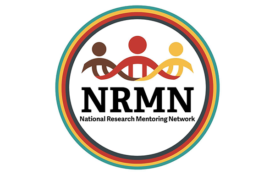-
Caught in a COVID Romance: How the Pandemic has Rewritten Relationships
... Psychologists and relationship experts say the pandemic has no doubt made people reconsider their relationships, especially as quarantine began to highlight longstanding issues. Kerry Lusignan, a licensed mental health counselor and founder of Northampton Couples Therapy said her clinic had been getting up to a hundred calls a week from couples seeking help. Clients are often bringing up issues – mostly around safety and threat – that counselors are familiar with but which have been exacerbated by the pandemic. ...
-
‘Right Now Feels So Long and Without Any End in Sight’
Those thoughts, typed into a digital journal on May 30, could stand as an anthem for this tragic pandemic year, a cry recognized around the world without explanation or context. Yet there is plenty of context from this writer, richly detailed and in weekly installments: “We mourn time lost and experiences lost,” she continued, later. “But we remind ourselves often that we don’t have to mourn the loss of life, and for that we are grateful.” She cited a favorite slogan: We were together, I forget the rest. The entries are among more than 6,500 from some 750 people of all ages and diverse backgrounds who have been keeping digital diaries on the same platform.
-
As More Women Enter Science, It’s Time to Redefine Mentorship
WHEN A GROUP of researchers at NYU Abu Dhabi published a paper in Nature Communications last fall suggesting that young women scientists should seek out men as mentors, the backlash was swift and vociferous. Countless scientists, many of them women, registered their indignation on Twitter—some even penning open letters and their own preprints in response. The original paper had found that female junior scientists who authored papers with male senior scientists saw their papers cited at higher rates. But a number of critics contested the assertion that this result established a link between male mentors and career performance.
-

When the Perfect Mentor Is Outside Your Network
The National Research Mentoring Network, supported by the U.S. National Institutes of Health, is a free social and professional networking tool that matches and facilitates mentoring relationships using evidence-based best practices and online resources.
-
The Pandemic Has Erased Entire Categories of Friendship
... American culture does not have many words to describe different levels or types of friendship, but for our purposes, sociology does provide a useful concept: weak ties. The term was coined in 1973 by the Stanford sociologist Mark Granovetter, and it comprises acquaintances, people you see infrequently, and near strangers with whom you share some familiarity. They’re the people on the periphery of your life—the guy who’s always at the gym at the same time as you, the barista who starts making your usual order while you’re still at the back of the line, the co-worker from another department with whom you make small talk on the elevator.
-
Beat the Burnout: How to Fight Pandemic Fatigue with Science
Winter can suck the wind from our sails in the best of years, but this is not just any winter – it’s a pandemic winter. This doesn’t necessarily mean it will be worse than ever. Life can be gloriously contrary and you might end up having a pleasant, cosy time. But there’s no denying that, even among those who aren’t grieving or recovering from infection, COVID burnout is real and as contagious as the virus itself. No one should beat themselves up about feeling fatigued right now. Burnout was already doing a swift trade before the pandemic came along, steadily spreading as technology allowed everyone to carry their inboxes in their pockets.

